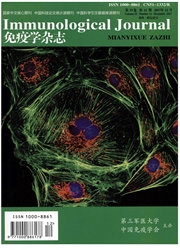

 中文摘要:
中文摘要:
FcγRIIB作为一种抑制性受体,可介导对多种免疫细胞的负反馈调节反应,其可通过依赖或不依赖胞浆区免疫受体酪氨酸抑制基序ITIM的方式起到抑制细胞激活的作用。FcγRIIB在多种细胞上的异常表达可引发各种疾病,如自身免疫疾病、感染性疾病和肿瘤等。阐明FcγRIIB的生物学功能及与疾病间的联系,将有助于人们在治疗这些疾病方面找到新的靶点,进而提供一种有效的治疗方法。
 英文摘要:
英文摘要:
As an inhibitory receptor, FcTRIIB mediates negative feedback regulation of many immunocytes. FcγRIIB can inhibit cell activation though immunoreceptor tyrosine-based inhibition motif (ITIM) or not. Anabnormal expression of FcγRIIB on cells would result in autoimmune diseases, infectious diseases, tumor and so forth. Further and comprehensive demonstration of the biological function of FcγRIIB and the relation with manydiseases can contribute to discovery of new target treatment for these diseases in future, and then provide effective methods for treating these diseases.
 同期刊论文项目
同期刊论文项目
 同项目期刊论文
同项目期刊论文
 期刊信息
期刊信息
